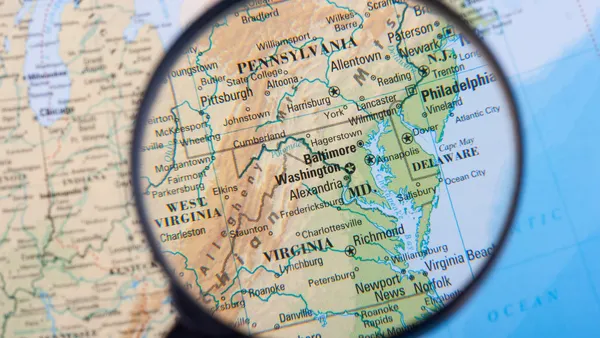Dive Brief:
-
Several former Wells Fargo executives could face criminal charges in relation to the bank's 2016 fake accounts scandal, according to American Banker.
-
Federal prosecutors could charge individuals who were once members of Wells Fargo's upper management as early as this month, sources told the publication.
-
An investigation has been conducted by Department of Justice (DOJ) prosecutors in California and North Carolina, with assistance from the Office of the Comptroller of the Currency (OCC) and the Securities and Exchange Commission (SEC), a source told American Banker.
Dive Insight:
It's a new year, but Wells Fargo's scandal-ridden past could take center stage among regulators and some lawmakers in 2020.
The investigation into former high-level Wells Fargo employees could result in some of the most high-profile criminal charges against U.S. bankers since the 2007-08 financial crisis, according to American Banker.
Sources told the publication, however, that the situation is fluid and subject to change.
The OCC, the SEC and the DOJ did not comment on the story.
The San Francisco-based bank's high-profile scandals, which also include questionable business practices tied to the bank's auto insurance, mortgage and wealth management divisions, have resulted in a series of fines and several leadership changes. However, most repercussions have fallen on lower-level employees, with thousands losing their jobs since the scandal came to light.
Current Wells Fargo board members could also face renewed scrutiny from lawmakers this year.
House Financial Services Committee Chairwoman Maxine Waters, D-CA, said last month her panel will request testimony from Wells Fargo's board regarding the bank's phony accounts scandal.
Waters said she also would request that the bank's new CEO, Charlie Scharf, appear alongside board members.
The bank has been operating under an asset cap set by the Federal Reserve since February 2018. In response to Wells Fargo's "consumer abuses and compliance breakdowns," the Fed announced it would restrict the bank's growth until it "sufficiently improves its governance and controls."
The bank, which has agreed to pay more than $4 billion in the past three years to settle various regulatory disputes, is not allowed to hold total assets above the $1.93 trillion it had at the end of 2017.












